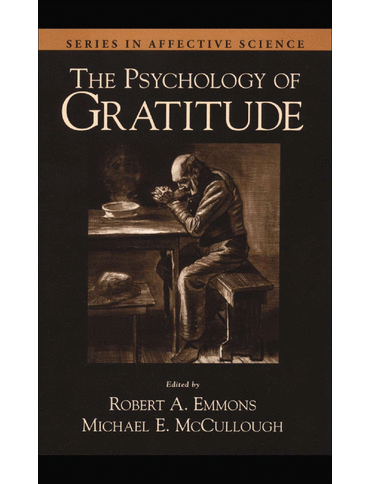My spiritual teacher, Sri Chinmoy, once told a story about one of his brothers to illustrate the concept of gratitude. When his brother had graduated in India, as was the tradition, he received a flower garland. Directly after the graduation ceremony, this brother paid a visit to his old elementary school teacher and placed the garland at his feet. He said, “You are the source of my learning, so you deserve this garland.”
The reason this anecdote moved me is because it depicts such a beautiful and pure expression of gratitude. “Gratitude is the sweetest emotion in the human life,” Sri Chinmoy said. “Nothing is as important or meaningful on earth as gratitude.”

The medieval German mystic Meister Eckhart once wrote, “If the only prayer you said in your whole life was, ‘thank you’, that would suffice.” ((http://www.goodreads.com/author/quotes/73092. Meister_Eckhart)) His aphorism sounds contradictory, for most of the time when we pray we ask for something – whether it be love, strength, health or material prosperity. Usually we say “thank you” only in the end, when our prayer or desire is fulfilled. And often when we say it, there is no real life or feeling behind it. It’s something we say out of politeness. But real gratitude is much more than saying “thank you.” Real gratitude is always wreathed in an elevating feeling of true appreciation and love. Real gratitude therefore is quite rare and grossly underestimated.

“The things that most deserve our gratitude we just take for granted,” Sri Chinmoy writes in The Jewels of Happiness. “Without air we cannot live for more than a minute or two (…), but do we ever feel grateful to the air? If we do not drink water we cannot survive. (…) But do we give any value to water? Every morning when we open our eyes we see the sun blessingfully offering us light and life-energy, which we badly need. But are we grateful to the sun?” By taking them for granted we lose sight of how beautiful and good air, water and sunlight really are.

Many things in life we just take for granted. By being grateful we let life astonish us again, like it did when we were children. We become conscious of all the little expressions of goodness that are showered on us every day. Only when we really count our blessings do we realize how many there are: the birds whistling, a tree in full blossom, a beautiful song on the radio, the company of friends. Instead of taking these things for granted, we can be grateful and realize how special they are, even if we experience them every day. Gratitude has the capacity to pull us out of the daily grind, so we can experience life at a deeper, more meaningful level.

Even scientific research has shown that gratitude leads to happiness. U.S. psychologists Michael McCullough and Robert Emmons studied the effects of gratitude on people by dividing them into three groups. The first group had to write down five things they were grateful for each week, which led to entries like “waking up this morning,” “the goodness of friends” and “the Rolling Stones.” The second group had to write down five things each week that had upset or irritated them, like fruitlessly looking for a parking place, a dirty kitchen or financial problems. The third group just had to write down five things that had influenced them that week, without classifying them as either positive or negative. People were randomly assigned to the three groups, so that the “irritation group” included some natural optimists, and several pessimistically inclined respondents landed in the “gratitude group.”
The results of the survey were astonishing. At the end of the study period, people in the gratitude group were more optimistic, enthusiastic and cheerful than people in the other two groups. Their score on a scientifically constructed happiness-scale was a good 25% higher. The grateful respondents suffered significantly less from health problems, depression and stress, and exercised more. A repeated study revealed even more benefits: Gratitude ensured better quality of sleep, a more pleasant and richer social life and made people more helpful and caring. Emmons and McCullough wrote a book about their findings, The Psychology of Gratitude, and concluded, “Gratitude is one of the few attitudes that can measurably change peoples’ lives.”
How to you develop gratitude? Here are five tried and tested methods:
 1. The gratitude diary
1. The gratitude diary
Like the respondents in McCullough and Emmons’ research, you, too, can keep a diary where every week or even every day you write down five things you are grateful for. They can be either small – a smile from a stranger, a beautiful flower in the garden – or big – your family or friends, a breakthrough insight. Also try to write down the reasons why you are grateful for them. For greater effect, you can enrich your diary by adding pictures, cut-outs from magazines, drawings or poems.
2. Enjoy consciously
Whenever something good happens to you, take the time to really enjoy the moment consciously. Again these moments can be big or small – a singing bird, a pleasant breeze, a new job, a beautiful holiday… Consciously enjoying the moment when it happens is an expression of your gratitude. Research has shown that conscious enjoyment strengthens the positive feelings of the experience.
3. Be happy in other people’s happiness
One of the most effective ways to develop gratitude is to be happy with the good fortune that befalls others. Often other people’s success makes us jealous. But when we realize that the happiness and good fortune of others can contribute to our own happiness, we can be grateful for it. As author Alan Cohen writes in his book Handle With Prayer: “The fact that a particular person and his or her experience is in your field of awareness means that you are capable of creating the same for yourself, and you are probably close to it. Instead of cursing another as a detractor from your good, bless this person as a harbinger of your own miracles.”
4. Write a thank-you letter
Write a letter to somebody that has helped you or inspired you or has been important to you in some way, but whom you haven’t thanked explicitly yet. In your letter of gratitude write down why you are grateful to that person. Try to be specific and detailed. You can mail the letter, but you get far better results if you visit the person and read the letter out in person or have him or read it out in your presence. This method yields great results for both the writer and the receiver.
5. Become a gratitude-flower
This meditation exercise from Sri Chinmoy can also help you develop gratitude. Imagine a beautiful and fragrant flower that is blossoming inside your heart. This is the flower of gratitude. Visualize the flower and try to imagine smelling its sweet fragrance. Then try to identify yourself with the beauty and fragrance of the flower. After a few minutes, try to feel that you yourself have become this gratitude-flower. When you can consciously identify yourself with the flower, you become gratitude itself.

